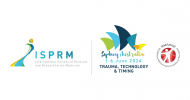Session outline
- Traumatic spinal cord injuries (TSCIs) represent a significant global health concern, but their management varies widely depending on the location and available resources.
- Focus on the regional collaboration of spinal cord injury care, teaching, training, and research.
- One of the primary challenges lies in the limited understanding of the epidemiological characteristics of TSCIs, the experiences of individuals with SCI living in communities, and the most effective management approaches.
- To address this challenge, developing a region-specific, cost-effective prevention strategy is crucial to reduce the incidence and overall burden of TSCIs in developing countries.
- Achieving this goal requires a comprehensive understanding of TSCIs and a thorough assessment of available national and regional resources.
- The primary objective of this workshop is to conduct an in-depth review of traumatic SCIs, specifically addressing unique management challenges, implementing collaborative training methods, and enhancing SCI rehabilitation within the national healthcare systems of South Asian Lower Middle-Income Countries.
The session will involve active participation and collaboration from multiple countries, including Bangladesh, Myanmar, Nepal, and Pakistan, in a joint scientific session aimed at advancing the field of SCI rehabilitation and prevention.
The Session will cover the following key areas:
- Introduction to regional-specific statistics and trends
- Traumatic SCI specific Explanation of traumatic SCI and its causes
- Epidemiology and prevalence of Traumatic SCI in the regional-focused countries
- Urban vs. rural disparities in traumatic SCI incidence
- Continuum of TSCI Care: Case Studies and Personal Stories
- Climate Change and SCI
- Vulnerability of Persons with SCI to Climate Change Effects
- Access to Healthcare Services During Climate-Related Disasters
- Rehabilitation principles and goals
- National scenario (of all care settings) of available resources for TSCI rehabilitation team care, rehabilitation therapy professionals, adaptations and innovations, and assistive devices
- Persons with SCI self-help groups and a national support system
- Identifying areas for improvement in SCI care
- Advocacy for an adapted policy and increased awareness for preventive measures
- Promoting research and innovation in SCI management
- Conclusion and Call to Action
- Opportunities for attendees to connect and collaborate for real life health care
- Networking and Resource Sharing among health care professionals
- Exchange knowledge, mutual collaborations for training and joint protocol, Future Directions and Advocacy
- Recap of key takeaways from the workshop
- Encouragement for attendees to apply their knowledge
- Invitation to join a follow-up network for ongoing collaboration
Learning outcomes
- Comprehensive Understanding: Participants will acquire a deep understanding of traumatic spinal cord injuries, including their causes, and epidemiology, with a specific focus on the four countries’ context.
- Climate Change Awareness: Attendees will grasp the vulnerabilities of persons with SCI to climate change effects and the importance of access to healthcare services during climate-related disasters.
- Rehabilitation Insights: Participants will gain insights into rehabilitation principles and adaptations for low-resource settings, along with the role of physiotherapy, and assistive devices in SCI care.
- Psychosocial Support: Attendees will learn about the emotional and psychological impact of SCI, support systems available in four countries, and strategies to enhance mental health and well-being.
- Networking and Collaboration: The workshop offers networking opportunities to connect with fellow healthcare professionals and stakeholders, promoting resource sharing and collaborative efforts to improve SCI care.
- Advocacy and Future Directions: Attendees will identify areas for improvement in SCI care, learn about advocacy for policy changes and increased awareness, and explore avenues for research and innovation in SCI management.
- Empowerment and Action: This workshop will equip participants with knowledge and motivation to contribute actively to enhancing the quality of life of individuals with traumatic spinal cord injuries.
Target audience
- Allied health
- Medical practitioners
- Students
- Trainees
- Nursing staff
- General public
- Faculties
- Researchers



